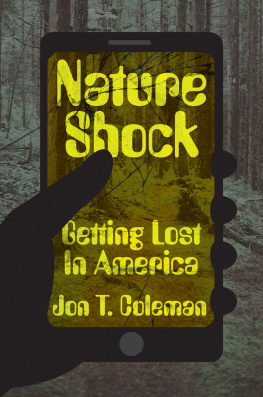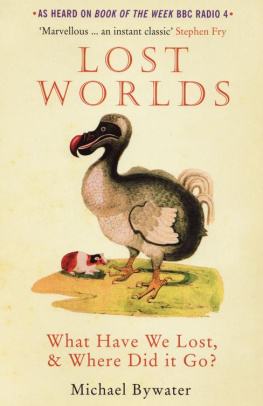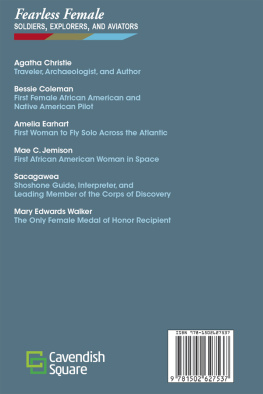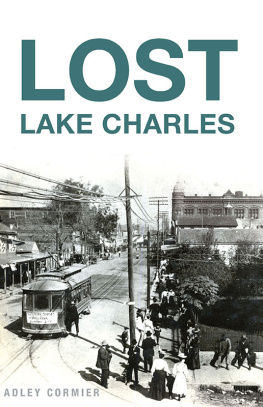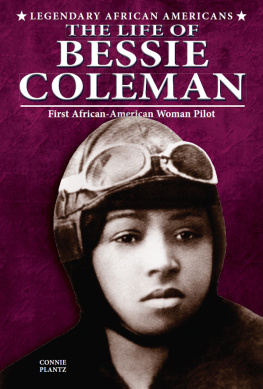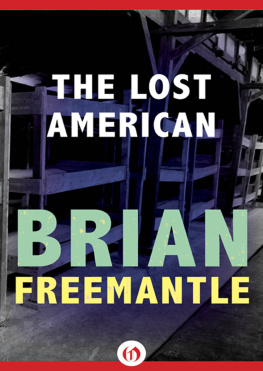NATURE SHOCK

Published with assistance from the Louis Stern Memorial Fund, and from the income of the Frederick John Kingsbury Memorial Fund.
Copyright 2020 by Jon T. Coleman.
All rights reserved.
This book may not be reproduced, in whole or in part, including illustrations, in any form (beyond that copying permitted by Sections 107 and 108 of the U.S. Copyright Law and except by reviewers for the public press), without written permission from the publishers.
Yale University Press books may be purchased in quantity for educational, business, or promotional use. For information, please e-mail (U.K. office).
Set in Scala and Scala Sans type by IDS Infotech, Ltd.
Printed in the United States of America.
Library of Congress Control Number: 2019957742
ISBN 978-0-300-22714-7 (hardcover : alk. paper)
A catalogue record for this book is available from the British Library.
This paper meets the requirements of ANSI/NISO Z39.48-1992 (Permanence of Paper).
10 9 8 7 6 5 4 3 2 1
CONTENTS
ACKNOWLEDGMENTS
In the coming pages, I write about the transition from relational space to individual space in the North American interior. I argue that, while we mostly dwell in individual space today, the relational lingers in the age of smartphones, satellites, and GPS. I offer the production of this book as evidence of the continued potency of relationships. Without the help of many people, I would not have finished. I alone am to blame for the final product, but I thank the following for pushing me to figure out what I wanted to say and for giving me the courage to say it.
I wish to acknowledge the Simon Guggenheim Foundation and the College of Arts and Letters at the University of Notre Dame for the yearlong fellowship leave that got this project rolling. I also want to thank the Huntington Library for a short-term research fellowship as well as the expertise and friendship of Peter Blodgett. I have had the pleasure to work with two incredible research assistants: Danae Jacobson and Madelyn Lugli.
Thank you to my colleagues who read the manuscript in various states of readiness, especially to Patrick Griffin, Darren Duchuk, Thomas Tweed, Jake Lundberg, Dan Graff, and Ted Beatty. Thanks as well to the Notre Dame graduate students in environmental and western American history who listened patiently to my elevator pitches about a getting-lost bookDanae Jacobson, John Nelson, Lindsey Wieck, Bethany Montagano, Felicia Moralez, Courtney Wiersma, and Craig Kinnear. Lisa Adams at the Garamond Agency must have read a dozen versions of the book proposal. I am grateful for her feedback and her patience. Thanks to Dan Gerstle for suggesting a book about getting lost in America over breakfast many years ago. Jean Thomson Black at Yale University Press has shepherded this book through the publishing gauntlet. I appreciate her expert guidance and steadfast belief in the project. I want to thank the anonymous readers Jean solicited. Thanks as well to Michael Deneen, Elizabeth Sylvia, Susan Laity, Robin DuBlanc, and the many editors and media wranglers at Yale University Press.
For the past six years, I have worked in an academic office, a strange habitat for a scholar used to solitary confinement. Thanks to my officemates: Christina Ryan, Kevin Vaughn, Jaime Pensado, Alexis Miller, Lisa Gallagher, Nell Collins, Morgan Wilson, David Smiley, and Leslie Lestinsky.
Lastly, I want to recognize my family. My mom, Barbara Coleman, is an inspirational elder, game for whatever life brings. I admire her and love her greatly. John and Cally Gilbert have treated me like a son for over twenty-five years. I appreciate their love and support. My children, Harry and Louise, have gone from eye-rolling teens to young adults in the span of the writing of this book. I am lucky to have kids who embrace the world with humor, grit, and compassion. I dedicate this book to Annie Gilbert Coleman. When early drafts nearly drove me to despair, Annie held me together. A brilliant historian, she read and listened as I fumbled around in the dark, trying to puzzle a way forward. She remains my North Star. I steer by her light.
NATURE SHOCK
Introduction
WANT TO GET LOST?
IN OCTOBER 2017, THE LUXURY TRAVEL company Black Tomato launched a bewilderment service, Get Lost. For a fee starting around $20,000, the company agreed to drop clients somewhere inhospitable. True adventurers could roll the dice and let travel consultants pick their outing from among some of the most remote, unfettered destinations imaginable, like the jungles of Guyana, the steppes of Mongolia, or the tundra of arctic Svalbard. Those wanting more say could select a target region among polar, coastal, jungle, mountain, or desert options. Black Tomato offered training sessions and gear-selection appointments with qualified outfitters in the months leading up to departure. Once inserted into the wild, clients were closely tracked by an experienced operations team. They carried satellite phones as a safety precaution, and Black Tomatos business partner, what3words, provided navigational technology far superior to off-the-shelf GPS devices. Clients who progressed through monitored check points eventually arrived at journeys end to reap their reward, a truly one of a kind celebration and send off, something deeply personal and indulgent.
Hiring a Get Lost concierge promised to make you a better person. A vacation filled with unexpected difficulties jarred clients out of their stressful lives and forced them to disconnect, engage in the moment and push themselves to achieve a sense of satisfaction. The companys website told potential customers that by starting with the feeling of being
Examples of the getting-lost cure abound in the digital age. They run the gamut from the state of Montanas tourist slogan Get Lost to the DVD series Get Lost: Your Guide to Finding Love, a ten-week Bible study for single women. If the freneticism of contemporary life is the problem, then getting lost has become a metaphor for slowing down, chilling out, and cultivating wellness. The prescription, however, deserves a historical warning label. Losing yourself to find yourself is a modern clich parading as ancient wisdom. The notion that getting lost could be a healthy last resort in a modern world surfaced in the United States in the nineteenth century and became widely accepted in the 1960s. Before that, getting lost horrified most everyone. Communities rallied to find the lost, and observers likened the experience to going insane. Of course, we too send rescue teams after missing persons, yet we long to be lost even as we sound alarms when people are. When we talk about getting lost, what do we really mean?
Black Tomatos marketing suggests a contemporary definition lacking in moral seriousness, true consequence, and historical continuity. When a travel agency orchestrates your discombobulation and an extraction team monitors your every move, can you genuinely be lost in the same way a Spanish conquistador was lost, a runaway slave was lost, or a backcountry hiker was lost? Probably not. Yet for all its slick packaging, Black Tomato harkened back to the past even as it promised to solve some very twenty-first-century problems like feeling besieged by too much information. Black Tomato imagined clients finding their true selves in bespoke isolation. Wanderers explored their psyches while hidden service professionals supported them with high-tech equipment. Neither side of this equation, the search for renewal in solitude or the surveillance, violated nature or history. The company sold a brand of individualism that traces back to the Enlightenment. The practice of spying on people to keep them from getting lost has an even longer history. Before eighteenth-century humans imagined free individuals roaming in space, they envisioned spaces as hierarchical communities. They conceived of space through kinship, and they kept
Next page
